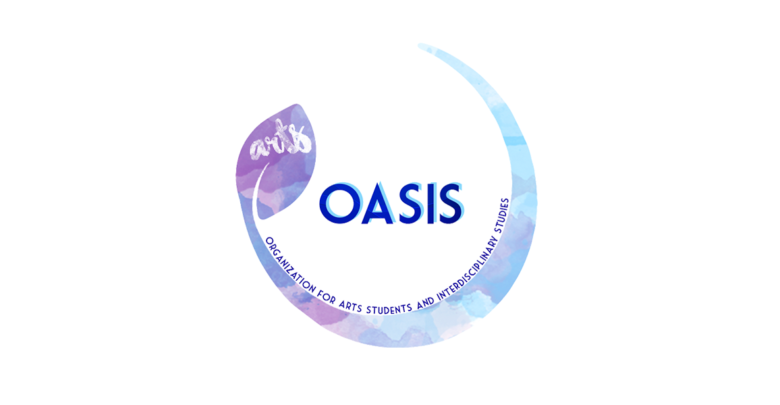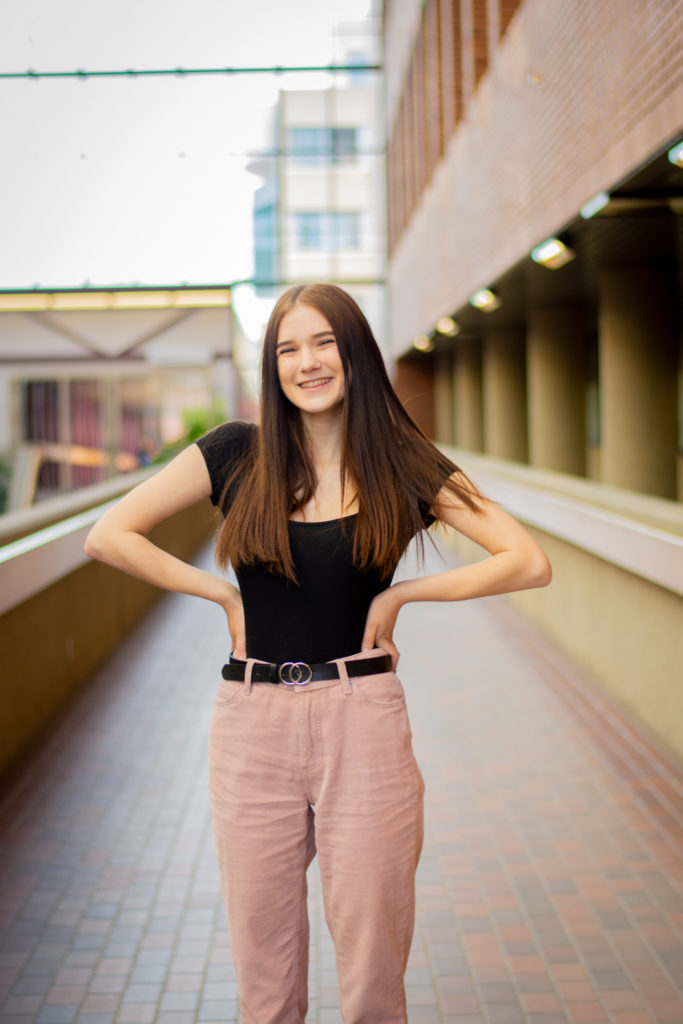OASIS Executive Committee Elections 2021 Q&A: President
Meet the sole candidate for OASIS president this year.
 Pia Co
Pia CoThis article is part one of a six-part series.
Alongside voting for their Students’ Council and General Faculties Council (GFC) representatives, arts and interdisciplinary undergraduate students at the University of Alberta are also voting in their faculty association representatives.
On March 17 and 18, arts and interdisciplinary undergraduate students will be voting for their representatives for the Organization of Arts Students and Interdisciplinary Studies (OASIS).
OASIS’s mandate is to represent and serve undergraduate arts students. The OASIS Executive Committee is responsible for overseeing day-to-day operations, and the Council is responsible for overseeing the legislation and the activities of the Executive Committee. Executive duties include coordinating locker rentals, organizing events, reaching out to students, setting annual priorities, reviewing funding applications, and advocating for students’ interests to the faculty of arts.
To help students get to know the candidates for OASIS elections, The Gateway interviewed them to learn more about how they would represent students and what issues they hope to address in these roles.
Responses have been edited for brevity and clarity.
President Candidate
- Maddie Dempsey (she/they), third-year political science student

Why are you running for OASIS Executive?
Maddie Dempsey: This past year, I have been lucky to serve as OASIS vice-president (outreach), where I was able to advocate for the needs of students throughout online learning and academic restructuring. My time as an OASIS executive has taught me a lot, and I don’t believe that my work here is done. There are still huge issues we are facing as arts Students, as online exam proctoring continues, academic restructuring challenges the unique identities of both our faculty and our departments, and we risk losing services, with rising tuition. I think my experience with OASIS is really valuable in the continuous advocacy for students. Two term executives provide a really important institutional knowledge for organizations like OASIS, where turnover is so high. I also have some big goals for the organization as a whole, that I think can be best realized through the President position.
Can you explain your platform concisely?
Dempsey: My goals for the coming year, if elected OASIS president, focus on accessibility & inclusivity of OASIS services and events, addressing the issues that have come with the decreased funding to the University, preserving a unique arts identity throughout academic restructuring, and ensuring that specific academic services remain at the department level. In terms of accessibility and inclusivity, I plan to re-introduce regular office hours to ensure students are able to reach us. Addressing issues related to budget cuts cannot be reduced to a list of actions but needs to be understood as an ongoing process of working with students and faculty to find ways to make things work, this is a process I am deeply committed to. As the current vice-president (outreach), a lot of my focus has been related to cultivating the culture of the arts community. This identity is at risk more than ever as we enter the College of Social Sciences and Humanities, which is why I will continue my work fostering the arts community through events, Crossings (the OASIS academic journal), and the continuation of the mentorship program. Overall, my goal is to make OASIS the go-to place for arts students who are in need of support.
What is an issue that you see facing your faculty specifically and how would you address it?
Dempsey: As a faculty with 17 departments, arts has already had to seriously consider restructuring and merging many of our departments during the ongoing process of academic restructuring. As of now, the faculty has stopped looking at this, in turn deciding to make up the money in merging and centralizing services. This means that our faculty either will lose access to services, or our unique departments – such as women’s and gender studies (WGS), East Asian studies (EAS), and Community Service Learning – will potentially be merged, risking the loss of identities, and especially in cases of EAS and WGS, culture. Not only are our department identities being put at risk, but so is our faculty identity. As the only research-based faculty that will be part of the college of social sciences and humanities, arts is going to have to work hard to maintain our identity and prove the worth of arts education. I think that the best way to address this is through consistent advocacy on behalf of students, while also demonstrating a strong arts faculty with strong departments.
How will you ensure you remain accountable?
Dempsey: Accountability is important, and it goes beyond running a campaign on a platform and sticking to it, because as the year progresses, the needs of students change. As President, there is an increased degree of accountability expected, as you become accountable for the actions of the entire organization. This means that I cannot just work to ensure my own accountability, but of all of OASIS. Being accountable as an organization requires that we have regular conversation with arts students, hearing their concerns and using your position to bring change. That’s why as president I plan to bring back regular office hours with OASIS executives and councillors, as a way to hear from students. Early in my term, I plan to have all executive and councillors create goals for the year, which will be made public to students, and discussed at our annual general meeting, so students can provide feedback on what they want from OASIS. These goals will help keep us on track, as a guiding factor for our projects and advocacy throughout the year.
What is your vision for OASIS as its president for the next year?
Dempsey: My plans for OASIS next year have two main divisions, how we as an organization will function internally, and how we are going to interact and engage with students. Internally, I want to really focus on decisions being made collectively by the executive team. I don’t think as president my job would be to make final decisions and act as anyone’s boss. I want the entire team to be contributing, we were all elected to serve and represent students, and so we all will. I also intend to engage council in some new ways. Instead of projects being taken on solely by executives and their directors working as assistants, I will work to create different committees within OASIS that include our councillors in more diverse projects.
When it comes to engaging with students, OASIS has massively expanded our social media presence and following the past year, and I hope that with our newly restored budget, we can translate that online following to eventual in person engagement. I hope to see our events, like Arts Gala and Arts Con, return in a new way making them more accessible to a larger number of students. When we left campus last March, many students didn’t know what OASIS was or what we did, I think that it’s important that we an eventual return to campus as a chance for OASIS to establish ourselves as the primary resource for arts students on campus.
Fun Question 1: If you had to eat at one HUB vendor for the rest of your life, which one would you choose?
Dempsey: New York Fries.
Fun Question 2: What quarantine hobby have you picked up?
Dempsey: Definitely not a new hobby, but my plant collection has grown by over 50 new plants!



